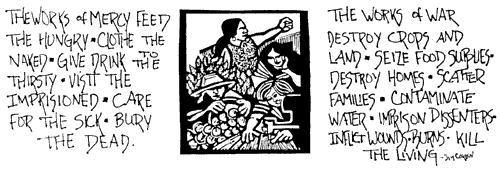There is a little buzz on the Anglican web about Archbishop Orombi's recent article, "What is Anglicanism?" Please read the entire article here.
(The following was cross posted as a comment at The Episcopal Cafe.)
This is an undeniably beautiful piece from the Archbishop of Uganda. His story of the growth of Christianity in Uganda is moving, the transformation of the people powerful. I think there is a great deal here to challenge us Western Anglicans to be more faithful.
However, I took note of a few particular thoughts in ++Orombi's letter. Orombi's understanding of homosexuality seems to be highlighted in this passage:
Less than a year later, on June 3, 1886, the king of Buganda ordered the killing of twenty-six of his court pages because they refused his homosexual advances and would not recant their belief in King Jesus. They cut and carried the reeds that were then wrapped around them and set on fire in an execution pit. As the flames engulfed them, these young martyrs sang songs of praise.
One is reminded here of the violent sins of Sodom & Gomorrah, of the use of rape as a tool of domination in war, and of the ugly excesses of ancient Rome. This view is entirely different, and evokes entirely different feelings, than the Western stereotypes of the "promiscuous gay". Seen through this lens, homosexuality represents Empire (colonialism?), men driven mad by worldly power, the anti-christ itself.
If this is one's understanding of homosexuality, it is not at all difficult to see how one would believe homosexuality to be absolutely at odds with Scripture.
I would argue that the issue at hand is NOT the authority of scripture (which I think we just might have some common ground on, no?), but rather the issue is the nature of homosexuality itself.
++Orombi clearly has had little exposure to the kind of gentle, committed relationships that so many gays engage in, has not had the opportunity to see them raise children, has not witnessed the persecution they experience as a result of the love they feel. I think we as a Communion could have had an entirely different kind of discussion if he had. Please pray for Archbishop Orombi, for the Ugandan Church, and for the Anglican Communion. May we all some day soon be reconciled.
In the mean time, I am awed at the Ugandan experience of God’s Word, and I continue to be proud to share a common faith with our Ugandan brothers and sisters.
Friday, July 13, 2007
Subscribe to:
Post Comments (Atom)
Currently Reading:
- Citizen Hobo: How a Century of Homelessness Shaped America - Todd Depastino
Recently Finished Reading:
- Blink - Malcolm Gladwell
- The Tipping Point - Malcolm Gladwell
- Utopia of Usurers - GK Chesterton
- Orthodoxy - GK Chesterton



No comments:
Post a Comment